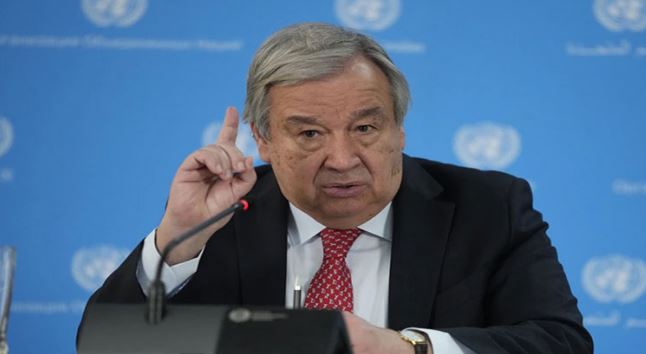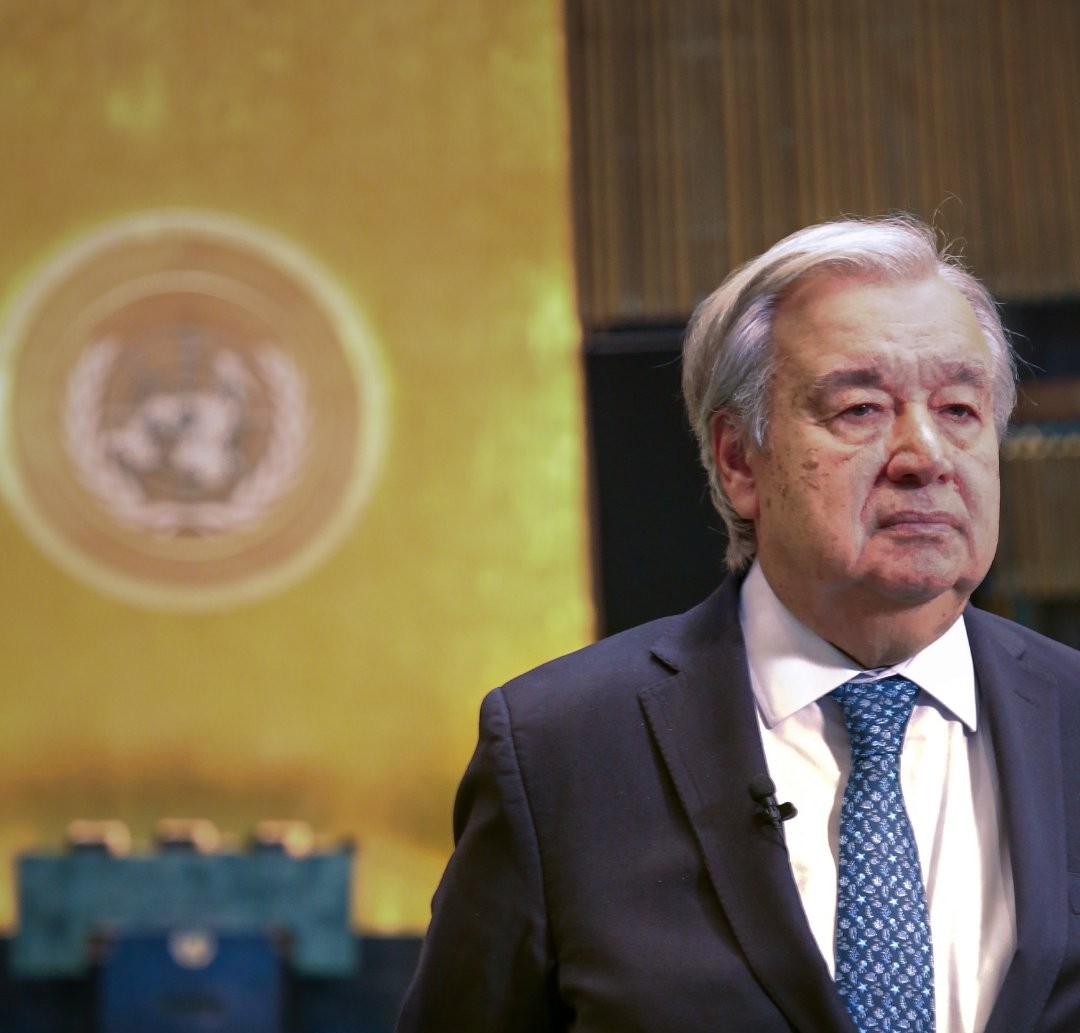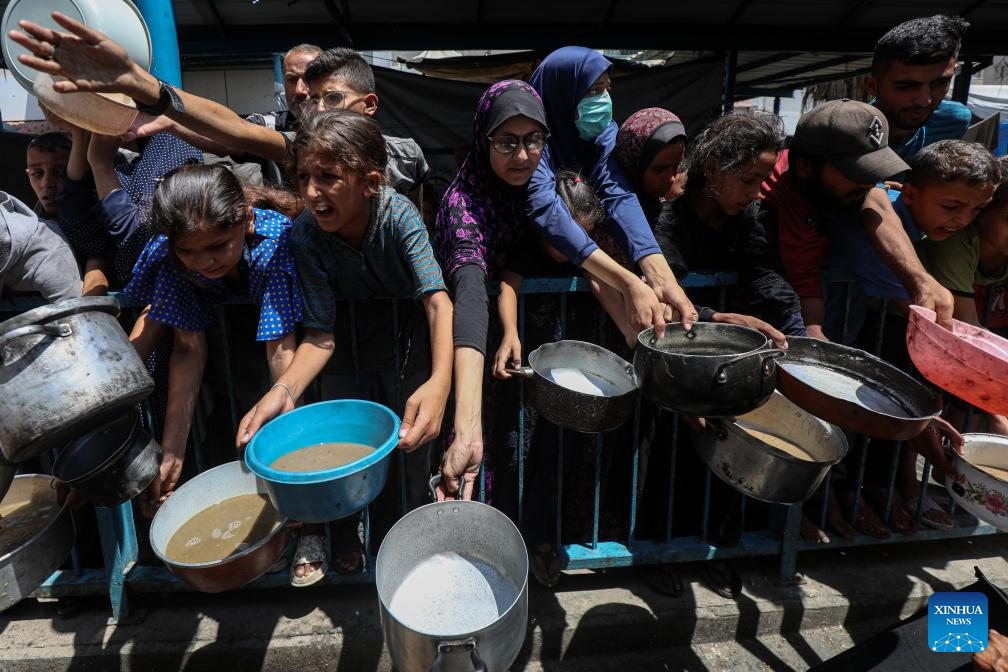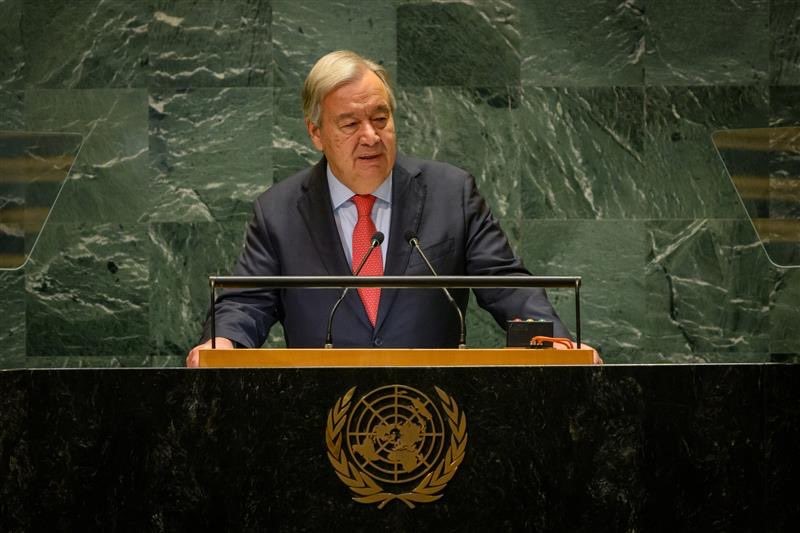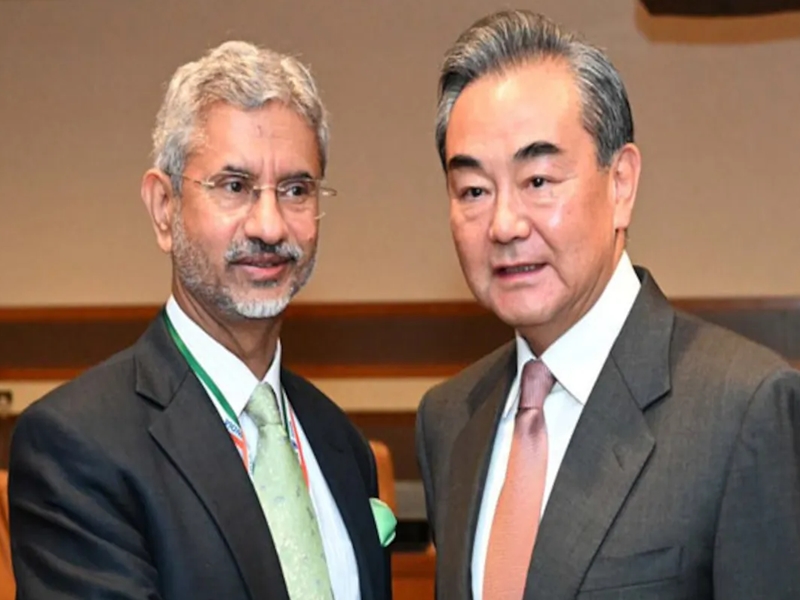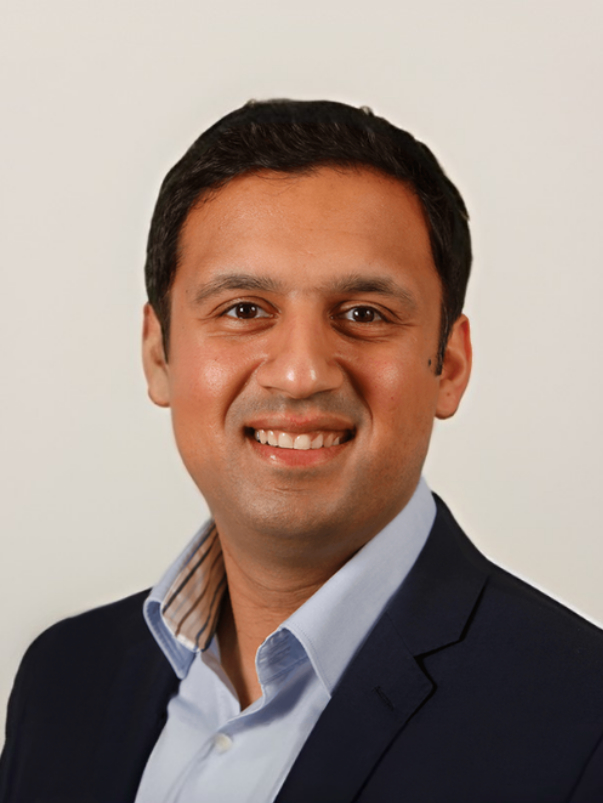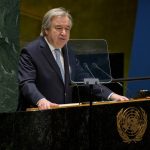Guterres says the multipolarity has created important opportunities for balance and justice for new leadership on the global stage…reports Asian Lite News
UN Secretary-General Antonio Guterres said global politics is in a deadlock and does not work in favor of anyone. In his opening speech at the 60th Munich Security Conference on Friday, Guterres addressed diplomats around the world at a panel titled Growing the Pie: A Global Order That Works for Everyone.
“As the title of our discussion implies, today’s global order is not working for everyone. In fact, I will go further and say it’s not working for anyone. Our world is facing existential challenges, but the global community is more fragmented and divided than at any time during the past 75 years,” the UN chief said.
Guterres said there is no justification for the Hamas attacks on Oct. 7 or Israel’s military response, which included collective punishment of the Palestinian people.
“The situation in Gaza is an appalling indictment of the deadlock in global relations. The level of death and destruction is shocking in itself, and the war is also spilling over borders across the region and affecting global trades.”
The UN chief said the humanitarian aid operation is no longer on life support in Gaza but is barely functioning.
“Humanitarians are working under unimaginable conditions, including live fire, multiple physical obstacles — and these are all restrictions — as well as the breakdown of public order.”
Commenting on Israeli Prime Minister Benjamin Netanyahu’s vowing to carry out an extensive military offensive on Rafah in the southern Gaza Strip, Guterres said the military action on the densely populated city should never take place.
“Rafah is at the core of the entire humanitarian aid operation. An all-out offensive on the city will be devastating for the 1.5 million Palestinian civilians there, who are already on the edge of survival.”
The UN chief reiterated his call for the immediate and unconditional release of all hostages and a humanitarian cease-fire in the besieged enclave, saying: “That is the only way to massively scale up a delivery in Gaza. And this must be the foundation for concrete and reversible steps toward a two-state solution based on international law and UN resolutions.”
The UN chief later commented on the war in Ukraine, saying the cost of human lives is appalling.
“The war triggered by the Russian invasion of Ukraine in clear violation of the UN Charter has no place in Europe of the 21st century. Two years in, the cost of human lives and suffering is appalling and the impact on the global economy has been particularly devastating for developing countries.
“We desperately need a just and sustained peace for Ukraine, for Russia and the world; but a peace in line with UN Charter and international law, which establishes the obligation to respect the territorial integrity of sovereign states.”
In his comparison of today’s “world order” to the previous eras, the UN chief said: “Even the Cold War era was in some ways less dangerous. The threat of nuclear war was real and existential. That’s why the United States and the Soviet Union agreed on arms reductions and controls and other mechanisms to prevent mutually assured destruction.”
“Today, in our multipolar worlds, we still face nuclear dangers and we are dealing with two more threats with existential dimensions, the climate crisis and the risks of uncontrolled artificial intelligence and we have been unable to take effective steps to respond to any of these existential challenges.”
Guterres says the multipolarity has created important opportunities for balance and justice for new leadership on the global stage.
“But the transition to multipolarity without strong global institutions can create chaos. When power relations are vague, the dangers of aggressive opportunism and miscalculation grow and today we see countries doing whatever they like, with no accountability. Impunity seems to be the name of the game. And so we must all be determined to reestablish the primacy of the rule of law.”
World leaders gather in Munich
Meanwhile, political leaders from some 40 nations will open the Munich Security Conference on Friday where US Vice President Kamala Harris, French President Emmanuel Macron and German Chancellor Olaf Scholz are expected to speak.
The annual event, which is often called the “Davos for Defense,” will focus on the war in Ukraine and Western policy toward Russia, according to the organizers.
Ukrainian President Volodymyr Zelenskyy is expected to make the opening speech via videolink and Ukrainian Foreign Minister Dmytro Kuleba will be at the conference in person.
Earlier, Munich Security Conference’s chairman Christoph Heusgen said the official representatives of Russia are not invited so as “not to give them a platform for their propaganda.”
Germany’s Scholz is scheduled to deliver a speech Friday on Berlin’s new foreign and defense policy, followed by a speech by French President Emmanuel Macron on his foreign policy vision.
Harris and US Secretary of State Antony Blinken will address the conference on Saturday on the issues of transatlantic security and cooperation.
NATO Secretary General Jens Stoltenberg, EU Commission chief Ursula von der Leyen, Poland’s Prime Minister Mateusz Morawiecki, Greek Prime Minister Kyriakos Mitsotakis and British Defense Secretary Ben Wallace are among the participants.
ALSO READ: Uyghur Policy Act Passes US House


